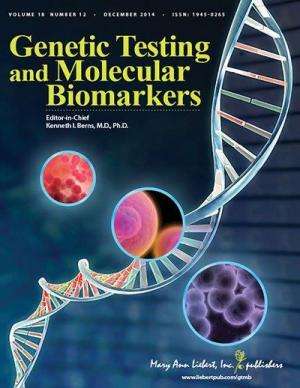New colorectal cancer risk factor identified

Adiponectin, a collagen-like protein secreted by fat cells, derives from the ADIPOQ gene. Variations in this gene may increase risk for type 2 diabetes, cardiovascular disease, and various cancers. A new study that links specific variations in the ADIPOQ gene to either higher or lower colorectal cancer risk is published in Genetic Testing and Molecular Biomarkers.
Xin Guo, First Affiliated Hospital of Harbin Medical University, China, and Jiaqi Liu, Liuping You, Gang Li, Yuenan Huang, and Yunlong Li, Second Affiliated Hospital of Harbin Medical University, explored the relationship between two polymorphisms in the adiponectin gene and the risk of colorectal cancer in the article "Association Between Adiponectin Polymorphisms and the Risk of Colorectal Cancer." They also showed that these genetic variations may interact with environmental factors, such as red meat intake, to affect cancer risk.
"This paper suggests that adiponectin gene sequence may have significant prognostic value for colorectal cancer," says Kenneth I. Berns, MD, PhD, Editor-in-Chief of Genetic Testing and Molecular Biomarkers, and Director of the University of Florida's Genetics Institute, College of Medicine, Gainesville, FL.
More information: The article is available on the Genetic Testing and Molecular Biomarkers website until January 11, 2014.

















